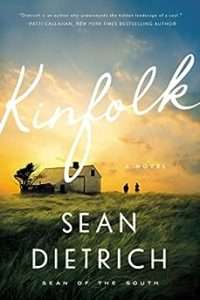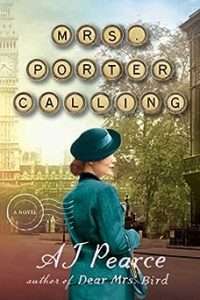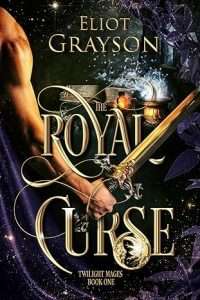 Kinfolk by Sean Dietrich
Kinfolk by Sean Dietrich
Sometimes it’s the most unlikely meetings that give us life’s greatest gifts.
1970s, Southern Alabama. Sixty-two-year-old Jeremiah Lewis Taylor, or “Nub,” has spent his whole life listening to those he’s loved telling him he’s no good—first his ex-wife, now his always-disapproving daughter. Sure, his escapades have made him, along with his cousin and perennial sidekick, Benny, just a smidge too familiar with small town law enforcement, but he’s never harmed anyone—except perhaps himself.
Nub never meant to change his ways, but when he and fifteen-year-old Waffle House waitress Minnie form an unlikely friendship, he realizes for the first time that there may be some good in him after all. Six-foot-five Minnie has been dealt a full deck of bad luck—her father is a convicted murderer serving a life sentence, her mother is dead and buried, and she has a Grand Ole Opry–worthy singing voice with no place to perform. Oh, and there’s the small fact that she’s unexpectedly pregnant, courtesy of a no-good high-school boy.
Gradually, Nub realizes the gift he’s been given: a second chance to make a difference.
Beloved Southern writer Sean Dietrich, also known as Sean of the South, once again brings people and places to life in this lyrical song-turned-story about found family, second chances, country music, and the poignant power of love and forgiveness.
My Review
Somehow all of the plot threads come together in the end. It’s wild but what else should I have expected from this book? As I mentioned earlier, I laughed my ass off at times and blinked back a tear at others. Some things cut close while many, many others brought me good memories as I know the South and I lived through 1972. Boomers and Gen Xers will know a lot of these things first hand. The book has sass, heart, and people triumphing over the odds against them. It will not be for everyone but I inhaled the 400 pages in two days and loved it. It will break your heart and then put it back together. A-
AmazonBNKoboBook DepositoryGoogle
 Mrs. Porter Calling by A. J. Pearce
Mrs. Porter Calling by A. J. Pearce
London, April 1943. A little over a year since she married Captain Charles Mayhew and he went away to war, Emmy Lake is now in charge of “Yours Cheerfully,” the hugely popular advice column in Woman’s Friend magazine. Cheered on by her best friend Bunty, Emmy is dedicated to helping readers face the increasing challenges brought about by over three years of war. The postbags are full and Woman’s Friend is thriving.
But Emmy’s world is turned upside down when glamorous socialite, the Honorable Mrs. Cressida Porter, becomes the new publisher of the magazine, and wants to change everything the readers love. Aided by Mrs. Pye, a Paris-obsessed fashion editor with delusions of grandeur, and Small Winston, the grumpiest dog in London, Mrs. Porter fills the pages with expensive clothes and frivolous articles about her friends. Worst of all, she announces that she is cutting the “Yours Cheerfully” column and her vision for the publication’s future seems dire. With the stakes higher than ever, Emmy and her friends must find a way to save the magazine that they love.
My Review
We’ve been through ups and downs with Emmy, Bunty, and the staff at the newspaper Woman’s Friend. Emmy’s oft repeated thought, “You are safe and you are loved” got me through. I need the next book in my hands now. A
AmazonBNKoboBook DepositoryGoogle
 Ghost 19 by Simone St. James
Ghost 19 by Simone St. James
Is there something wrong with Ginette Cox? It’s what everyone seems to think. When a doctor suggests that what she might need is less excitement, she packs up and moves from New York City to a house in suburban NY: 19 Howard Ave.
The town offers Ginette little in the way of entertainment in 1959, but at least she has interesting neighbors. Whether it’s the little girl with her doll or the couple and their mother-in-law, Ginette watches them from her window and makes up names and stories for them.
But it’s not all peaceful in suburbia. Ginette finds it hard to sleep in her new house. There are strange and scary noises coming from the basement, and she is trapped, either by a ghost or her own madness.
But when Ginette starts to think a murder has taken place and a mysterious man starts making terrifying appearances outside her window, it’s clear she must deal with whatever isn’t allowing her to escape this house…
My Review
This one does take its time getting started – and doesn’t hesitate to make Gin a bit unlikeable and give her some affectations – but then I was literally holding my breath and my fingers were flying as I raced through the last part of the story. What had happened?! Who was wailing from the basement? What did sweetheart Andrew see when he scoped out the house across the lane that he and Ginette were watching? Where did Mother-in-Law go? Who was the man in black who stood in front of Ginette’s window? Was Detective Ian Challis married or not? And how was Ginette going to finally get away. That is if she got away. A-
AmazonBNKoboBook DepositoryGoogle
 Mammoths at the Gates by Nghi Vo
Mammoths at the Gates by Nghi Vo
The wandering Cleric Chih returns home to the Singing Hills Abbey for the first time in almost three years, to be met with both joy and sorrow. Their mentor, Cleric Thien, has died, and rests among the archivists and storytellers of the storied abbey. But not everyone is prepared to leave them to their rest.
Because Cleric Thien was once the patriarch of Coh clan of Northern Bell Pass–and now their granddaughters have arrived on the backs of royal mammoths, demanding their grandfather’s body for burial. Chih must somehow balance honoring their mentor’s chosen life while keeping the sisters from the north from storming the gates and destroying the history the clerics have worked so hard to preserve.
But as Chih and their neixin Almost Brilliant navigate the looming crisis, Myriad Virtues, Cleric Thien’s own beloved hoopoe companion, grieves her loss as only a being with perfect memory can, and her sorrow may be more powerful than anyone could anticipate. . .
My Review
I started and finished this novella in one day. As soon as I ended it I thought, I’m not quite sure what that all was but it was brilliant. My book notes state “A story of Singing Hills, young novices, justice, and the way life changes.” Chih has returned thinking that everything will be the same. Many things are, which is comforting, but not everything. New realities must be navigated and accepted. Life is change, after all. In the end, a new normal is coming into being while a pathway to maintaining good relations with those who command massive mammoths is found. Justice will be done and a grieving neixin will find some peace. A
AmazonBNKoboBook DepositoryGoogle
 Thornhedge by T. Kingfisher
Thornhedge by T. Kingfisher
There’s a princess trapped in a tower. This isn’t her story.
Meet Toadling. On the day of her birth, she was stolen from her family by the fairies, but she grew up safe and loved in the warm waters of faerieland. Once an adult though, the fae ask a favor of Toadling: return to the human world and offer a blessing of protection to a newborn child. Simple, right?
But nothing with fairies is ever simple.
Centuries later, a knight approaches a towering wall of brambles, where the thorns are as thick as your arm and as sharp as swords. He’s heard there’s a curse here that needs breaking, but it’s a curse Toadling will do anything to uphold…
My Review
Oh, what a lovely story. I can easily see how this flowed (pun intended) into being. The heroine is delightful and just the kind of self-effacing person who I enjoy watching save the day. And Toadling saves so many, most of whom have/had no idea of what she did. I wasn’t quite sure how things would end up. I pondered this as I read to the end and realized that I would have been happy either way Toadling decided to do things. But I think she made the right choice. This is the sort of story I want to flip back to the beginning and start reading again the minute I finish it. And I agree. It is sweet, dammit. A
AmazonBNKoboBook DepositoryGoogle
 Everything’s Coming Up Beatrix by Georgia Dunn
Everything’s Coming Up Beatrix by Georgia Dunn
Stop the presses: The news crew at BCN is back for more adventures and laughs!
Join Elvis, Puck, Lupin, Tommy, Beatrix, and the whole team for spooky tales around the space heater, daring hairstyles, not-so-hilarious sweaters, an Easter egg hunt disaster, new cat foods, “Heck on the Deck!”, something called a papasan, and the first ever celebration of St. Catty’s Day! Tune into a ghostly broadcast when Puck makes a harrowing journey to the attic and gets in over his head. . . . Can Elvis and Tabitha work together to save him?
Learn how to make your own bookmark, your own little book, and a reading fort!
My Review
I fell in love with the news crew of Breaking Cat News years ago, read it everyday online, and eagerly await my pre-ordered paperback copies of the books. Georgia Dunn perfectly captures so much of the behavior that cat servants know – both what we love and what we don’t (hairballs, anyone?). One of the delightful newer characters added over the years is young cub reporter Beatrix. With her polydactyl paws, she easily manages the station’s social media accounts while her outgoing, yet also thoughtful, personality charms all. A
AmazonBNKoboBook DepositoryGoogle
 Madeline Finn and the Blessing of the Animals by Lisa Papp
Madeline Finn and the Blessing of the Animals by Lisa Papp
When Madeline Finn attends the Blessing of the Animals with Bonnie and Star, she learns that everyone has a gift inside, which they can share with the world. And one way that Madeline Finn can share her blessing is with the animals at her local shelter.
It’s a special day! Madeline Finn is taking Bonnie and Star to the Blessing of the Animals. When they arrive, they see dogs and cats. There’s even a goat!
Madeline Finn watches closely as the Reverend Mary Alice spends time with every animal, giving each one their very own blessing.
“How do you know what to say?” Madeline Finn wants to know.
“Everyone has a blessing inside,” Miss Mary explains. “A special gift to share with the world.”
When Madeline Finn receives a blessing all her own, she has a new mission: finding the blessings in others. Surely, the furry and feathery residents at her local animal shelter have lots of special gifts to share. They just need someone to believe in them—someone to set those blessings free.
My Review
Yes, I had to stop numerous times to wipe my eyes. Yes, I was crying. But they’re happy tears and hopeful tears for the animals Madeline blesses with things that might help the animals find homes. The illustrations are lovely and the message is heartfelt. We’re all special and have something to offer. A
AmazonBNKoboBook DepositoryGoogle
 The Lady from Burma by Allison Montclair
The Lady from Burma by Allison Montclair
Murder once again stalks the proprietors of The Right Sort Marriage Bureau in the surprisingly dangerous landscape of post-WWII London.
In the immediate post-war days of London, two unlikely partners have undertaken an even more unlikely, if necessary, business venture – The Right Sort Marriage Bureau. The two partners are Miss Iris Sparks, a woman with a dangerous – and never discussed – past in British intelligence and Mrs. Gwendolyn Bainbridge, a war widow with a young son entangled in a complicated aristocratic family. Mostly their clients are people trying to start (or restart) their lives in this much-changed world, but their new client is something different. A happily married woman has come to them to find a new wife for her husband. Dying of cancer, she wants the two to make sure her entomologist, academic husband finds someone new once she passes.
Shortly thereafter, she’s found dead in Epping Forest, in what appears to be a suicide. But that doesn’t make sense to either Sparks or Bainbridge. At the same time, Bainbridge is attempting to regain legal control of her life, opposed by the conservator who has been managing her assets – perhaps not always in her best interest. When that conservator is found dead, Bainbridge herself is one of the prime suspects. Attempting to make sense of two deaths at once, to protect themselves and their clients, the redoubtable owners of the Right Sort Marriage Bureau are once again on the case.
My Review
I finished the book reading flat out and punching the air at the way Gwen and Iris handle one suspected criminal confession and how Gwen’s knowledge of single malts helps her in another. The final scenes of dealing with grief almost had me tearing up – okay, okay yes I was tearing up – but one character has had this coming and desperately needed it while another has only just begun to confront his loss – the depth of which we realize from a conversation Iris has with a former Army commando. I was wrung out and satisfied at the same time and I can’t wait to see what happens next. A
AmazonBNKoboBook DepositoryGoogle
I will admit that I am sliding these last two in since none of Dinah Dean’s books have been released digitally until now and Grace Burrowes’ novella was initially a webstore/library exclusive last year.
 The Country Gentleman by Dinah Dean
The Country Gentleman by Dinah Dean
When he’s mistaken for her husband-to-be, is that prophetic?
Miss Lucinda Calvert’s quiet life as a rector’s daughter is turned topsy-turvy by the arrival of a gentleman new to the area. Mr John Harris seems respectable, but sets the village gossips wagging with speculation about his past—on which topic he is very private indeed.
He pays her particular attention, and his mysterious papers and odd habits confuse her almost as much as his unexpected kiss! Then speculation of a French spy in their midst, taking advantage of the nearby military encampment, sets Lucinda worrying. Could the man she has grown so fond of—perhaps even loves—be a traitor?
My Review
Lucinda finds herself starting to fall for him, and Fred certainly approves of him – though Fred has never approved of Lucinda’s other male friend Monsieur Roland, the poor French emigree who fled France because of the Revolution – and Lucinda’s father has always said that Fred is an excellent judge of character though Lucinda’s mother sniffs at that saying “(Mr. Harris) must be a paragon if the cat likes him!” A-
AmazonBNKoboBook DepositoryGoogle
 Worth More than Rubies by Grace Burrowes
Worth More than Rubies by Grace Burrowes
All the Duke of Dunfallon wants this holiday season is a respite from the machinations of the matchmakers. When pursued by a particularly determined would-be duchess, he ducks into the West Bartholomew Street Lending Library. Librarian Emerald Armstrong sees a dapper gent in a bit of a hurry and mistakes Dunfallon for a curate overdue for his assignation with West Bart’s theological collection.
Dunfallon is intrigued by Emmie’s love of books, her disdain for society’s games, and her ferocious generosity of spirit toward all of the library’s patrons. She has no patience with posturing, and thus he takes the risk of admitting his true identity. To his surprise, Emmie doesn’t mind all that much that he’s a duke—some things cannot be helped—but she is far less willing to keep silent about Dunfallon’s other secret, the one he has been guarding from even his fellow peers.
If an honorable woman is worth more than rubies, what will a duke sacrifice to earn her love?
My Review
What a delight. Another book loving couple and more cats! And what a silly widgeon I’ve been to not have been reading your books up until now. I wondered when Emmie would learn the truth behind Dane’s identity, thinking this would probably lead to the proverbial Third Act breakup only to discover the story would unfold quite differently. Huzzah for something unusual and some quality intimacy that even includes heaving bosoms. This was lovely. A-
AmazonBNKoboBook DepositoryGoogle







 Kinfolk by Sean Dietrich
Kinfolk by Sean Dietrich Mrs. Porter Calling by A. J. Pearce
Mrs. Porter Calling by A. J. Pearce Ghost 19 by Simone St. James
Ghost 19 by Simone St. James Mammoths at the Gates by Nghi Vo
Mammoths at the Gates by Nghi Vo Thornhedge by T. Kingfisher
Thornhedge by T. Kingfisher Everything’s Coming Up Beatrix by Georgia Dunn
Everything’s Coming Up Beatrix by Georgia Dunn Madeline Finn and the Blessing of the Animals by Lisa Papp
Madeline Finn and the Blessing of the Animals by Lisa Papp The Lady from Burma by Allison Montclair
The Lady from Burma by Allison Montclair  The Country Gentleman by Dinah Dean
The Country Gentleman by Dinah Dean Worth More than Rubies by Grace Burrowes
Worth More than Rubies by Grace Burrowes





